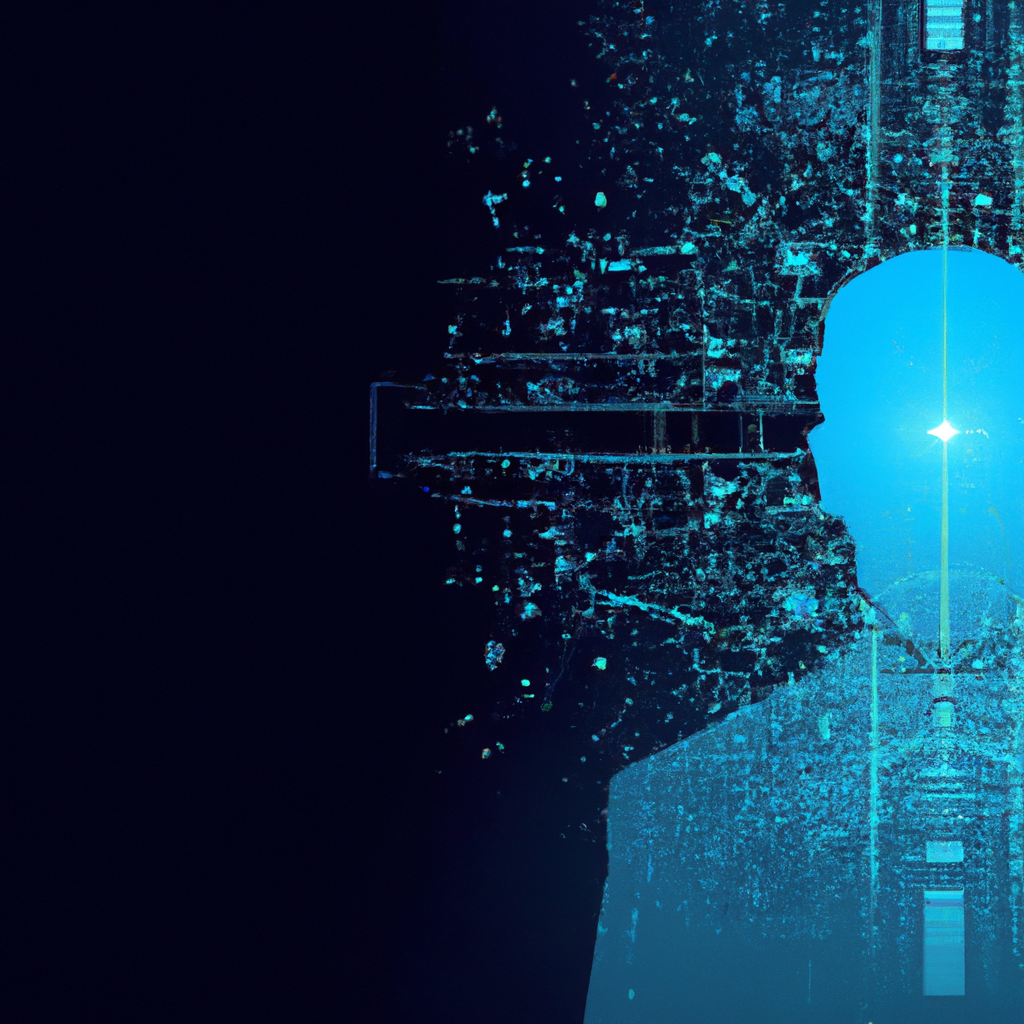Artificial Intelligence (AI) has caused a significant shift in the landscape of digital marketing, revolutionizing the way brands and businesses interact with consumers. With the ability to analyze vast amounts of data and deliver personalized experiences, AI has become an indispensable tool for marketers. From chatbots that provide real-time customer support to predictive algorithms that optimize ad targeting, AI has transformed the way marketing campaigns are created and executed. In this article, we will explore the profound impact of AI on digital marketing and how it is reshaping the industry.

Enhanced Personalization
In the world of digital marketing, personalization has become a key aspect of providing a tailored and relevant customer experience. AI has greatly improved the ability of marketers to segment their customer base and deliver personalized content. With enhanced customer segmentation, AI algorithms are able to analyze vast amounts of data to identify specific demographics, interests, and preferences. This enables marketers to create targeted campaigns that resonate with their audience on a deeper level.
AI also plays a crucial role in dynamic content creation. By analyzing user behavior and preferences, AI algorithms can automatically generate personalized content that is unique to each individual. This goes beyond simply inserting a name or location into an email. AI can now generate entire articles, emails, or social media posts that are specifically tailored to a customer’s interests and preferences. This level of personalization helps to increase user engagement and ultimately leads to higher conversion rates.
Hyper-personalized advertising takes personalization to the next level. Through AI-powered algorithms, marketers can deliver individualized ads to each customer based on their previous interactions, preferences, and behaviors. This level of personalization increases the relevance and effectiveness of ads, leading to higher click-through rates and ultimately, more conversions.
Improved Customer Insights
One of the major benefits of AI in digital marketing is its ability to provide real-time data analysis. This means that marketers no longer have to rely on historic data or monthly reports to gain insights into customer behavior. AI algorithms can analyze data as it comes in, allowing marketers to make informed decisions in real-time. This real-time data analysis enables marketers to identify opportunities, spot trends, and adjust their strategies accordingly.
Predictive analytics is another area where AI has made a significant impact. By analyzing historical data and patterns, AI algorithms can provide insights into future customer behavior. This allows marketers to anticipate customer needs and preferences, enabling them to tailor their campaigns before the customer even realizes they need a product or service. Predictive analytics can greatly increase the effectiveness of marketing campaigns and drive higher ROI.
Behavioral targeting is a powerful tool made possible by AI. By analyzing customer behavior, preferences, and interactions, AI algorithms can deliver highly targeted and relevant content. This ensures that customers are receiving the right message at the right time, increasing the likelihood of conversions. Behavioral targeting allows marketers to understand their customers on a deeper level and deliver personalized experiences that resonate with each individual.
Efficient Marketing Automation
Marketing automation has been revolutionized by AI. From automated email marketing campaigns to automated social media management, AI-powered tools have made it easier than ever to streamline marketing processes and improve efficiency. With automated email marketing campaigns, marketers no longer have to manually send out individual emails. AI algorithms can segment customers, craft personalized emails, and determine the optimal time for sending, all automatically.
Similarly, social media management has become much more efficient with the help of AI. AI-powered tools can schedule and post social media content, analyze engagement metrics, and even suggest content ideas. This saves marketers time and allows them to focus on other important aspects of their job.
Lead generation is another area where AI has made a significant impact. Through AI algorithms and machine learning, marketers can identify leads with a high probability of conversion. AI can analyze customer behavior, interactions, and preferences to create highly targeted lead generation campaigns. This reduces the time and effort required to manually identify potential leads, allowing marketers to focus on closing deals and driving revenue.

Enhanced Customer Experience
AI has greatly enhanced the customer experience by providing tools such as chatbots for customer support. Chatbots are AI-powered virtual assistants that can interact with customers, answer frequently asked questions, and provide support. These chatbots are available 24/7, ensuring that customers can receive assistance whenever they need it. By automating customer support, businesses can significantly reduce wait times and provide instant solutions to common issues.
Virtual assistants take personalization and customer assistance to the next level. Using AI algorithms, virtual assistants can learn and understand individual customer preferences and behaviors. They can provide personalized recommendations, help with product selection, and even place orders on behalf of the customer. Virtual assistants give customers a personalized shopping experience, making them feel valued and increasing the likelihood of repeat business.
Voice search optimization is another aspect of customer experience that has been enhanced by AI. With the rise of voice assistants such as Siri, Alexa, and Google Assistant, optimizing websites and content for voice search has become crucial. AI algorithms help businesses understand the unique requirements of voice search and optimize their content accordingly. This ensures that businesses are visible and accessible to customers using voice search, ultimately improving the overall customer experience.
Advanced Data Analysis
AI has enabled businesses to go beyond basic data analysis and delve into more complex areas such as sentiment analysis. Sentiment analysis is the process of analyzing customer feedback, reviews, and social media posts to understand customer sentiment towards a product or brand. AI algorithms can analyze large volumes of text and identify positive, negative, or neutral sentiments. This allows businesses to gain a deeper understanding of how customers perceive their brand and make informed decisions to improve their products or services.
Image and video recognition is another area where AI has made significant advancements in data analysis. AI algorithms can analyze images and videos to identify objects, people, and even emotions. This capability allows businesses to gain insights into user-generated content, social media posts, and even analyze consumer behavior in physical stores. By analyzing images and videos, businesses can understand how customers interact with their brand visually and make changes or improvements accordingly.
Customer sentiment prediction takes sentiment analysis a step further. By analyzing historical data and patterns, AI algorithms can predict customer sentiment and behavior in the future. This allows businesses to anticipate customer needs, preferences, and potential issues before they arise. By predicting customer sentiment, businesses can tailor their marketing strategies and campaigns to provide the best possible customer experience.
Improved SEO Strategies
AI-powered keyword research has greatly improved the effectiveness of SEO strategies. By analyzing search patterns, AI algorithms can identify keywords and phrases that are most relevant and likely to drive traffic to a website. This ensures that businesses are targeting the right keywords and optimizing their content accordingly, increasing their visibility in search engine results.
Content optimization is another area where AI has made a significant impact on SEO strategies. AI algorithms can scan and analyze websites to identify areas for improvement in terms of content quality, readability, and keyword optimization. This helps businesses optimize their content for search engines, ensuring that it is highly relevant and valuable to users.
Voice search optimization is a relatively new aspect of SEO that has been made possible by AI. With the rise of voice assistants and smart speakers, optimizing websites and content for voice search has become crucial. AI algorithms analyze voice search behavior and provide insights into how businesses can optimize their content to rank higher in voice search results. This helps businesses stay ahead of the curve and cater to the growing number of users relying on voice search.
Streamlined Advertising Campaigns
AI has revolutionized advertising campaigns by enabling programmatic advertising. Programmatic advertising uses AI algorithms to automate the buying and selling of ad inventory in real-time. This means that businesses can target their ads to specific audiences and demographics, ensuring that they are reaching the right people at the right time. Programmatic advertising also optimizes ad placements and bids, ensuring that businesses are getting the most value from their ad spend.
Smart bidding is another aspect of AI-powered advertising campaigns. AI algorithms can analyze customer data, ad performance, and other factors to determine the optimal bid for each ad placement. This ensures that businesses are not overspending on ads and are getting the best possible return on investment.
Ad targeting optimization is another major benefit of AI in advertising campaigns. AI algorithms analyze customer data, behaviors, and preferences to identify the most relevant and effective targeting parameters for ads. This ensures that businesses are delivering ads to the right audience, increasing the likelihood of conversions and reducing wasted ad spend.
Enhanced Fraud Detection
AI has greatly enhanced fraud detection in digital marketing. By using AI-powered algorithms, businesses can identify and prevent fraudulent activities such as click fraud or fake accounts. AI algorithms can analyze user behavior, interactions, and patterns to identify suspicious activities and take appropriate action. Real-time monitoring of suspicious behavior ensures that businesses can detect and respond to fraudulent activities before they cause significant damage.
AI-powered security systems are another aspect of fraud detection in digital marketing. These systems use AI algorithms to analyze and identify potential security threats such as malware or hacking attempts. By constantly monitoring and analyzing data, AI-powered security systems can detect and prevent security breaches, ensuring the safety of customer information and business operations.
Augmented Content Creation
AI has augmented content creation by providing automated content generation tools. These tools use AI algorithms to analyze data, trends, and user behavior to generate unique and engaging content. Automated content generation saves businesses time and resources by eliminating the need for manual content creation. Content can be automatically generated based on user preferences, industry trends, or specific topics.
Content curation is another area where AI has improved content creation. AI algorithms can curate content from various sources and present it in a personalized and relevant manner. This ensures that businesses are providing their audience with valuable and up-to-date content without the need for extensive manual curation.
Content ideation is another aspect of content creation that has been improved by AI. AI algorithms can analyze user behavior, search patterns, and social media trends to identify popular topics and content ideas. This helps businesses stay ahead of the competition and create content that resonates with their audience.
Better ROI and Cost-Efficiency
AI has greatly improved ROI and cost-efficiency in digital marketing. By optimizing ad spend, businesses can ensure that their advertising efforts are generating the best possible return on investment. AI algorithms analyze customer data, ad performance, and other factors to determine the most effective allocation of ad spend. Optimized ad spend ensures that businesses are reaching the right audience and maximizing their conversions.
Reduced manual labor costs are another major benefit of AI in digital marketing. With automation and AI-powered tools, businesses can save time and resources on tasks that would otherwise require manual labor. This allows marketers to focus on strategic initiatives and high-value activities, increasing overall productivity and efficiency.
Increased revenue generation is a direct result of the improved efficiency and effectiveness brought about by AI in digital marketing. By delivering personalized experiences, targeting the right audience, and optimizing marketing strategies, businesses can drive higher conversion rates and ultimately increase their revenue. AI has revolutionized the way businesses approach marketing, providing them with the tools and insights needed to thrive in the digital age.
In conclusion, the impact of AI on digital marketing has been transformative. From enhanced personalization to streamlined advertising campaigns, AI has revolutionized the way businesses engage with customers and drive revenue. With improved customer insights, efficient marketing automation, and enhanced customer experience, AI has become an invaluable tool in the digital marketer’s arsenal. Advanced data analysis, improved SEO strategies, and better fraud detection have further solidified the role of AI in digital marketing. With augmented content creation, better ROI, and increased cost-efficiency, AI has become a driving force behind marketing success in the digital age. As technology continues to advance, the impact of AI on digital marketing is only set to grow, providing businesses with new opportunities and challenges alike.
